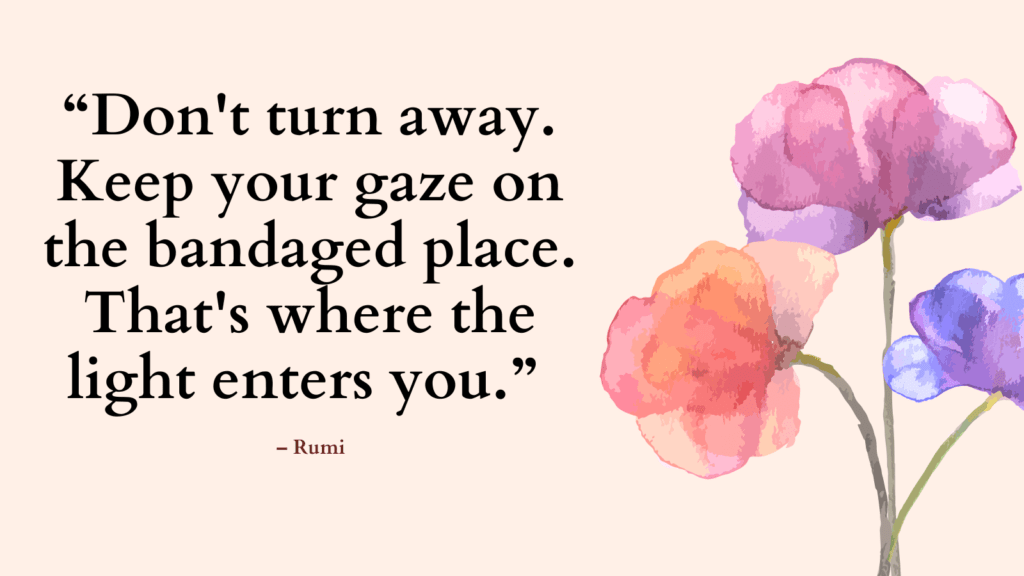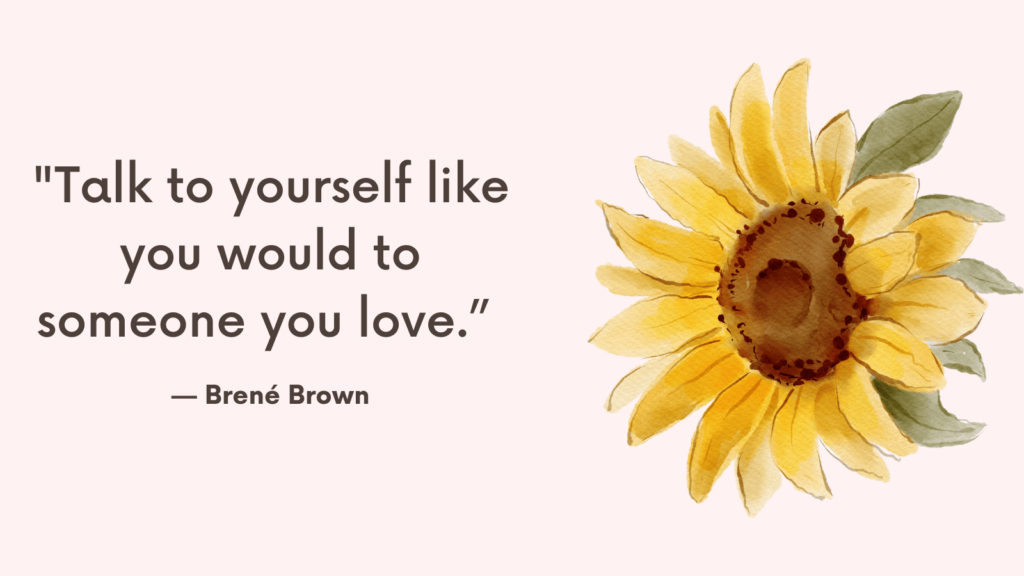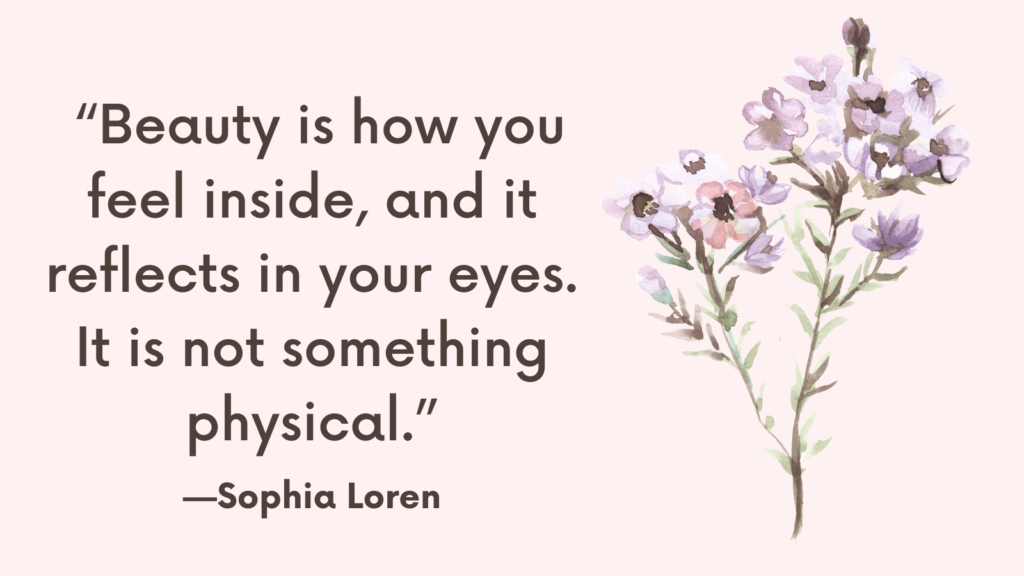This post contains CBT worksheets bundle to help you improve your emotional health.
What Is CBT?
CBT is one of the most popular kinds of therapy that targets our negative ways of thinking which are distorting our attitudes towards ourselves and the world around us, and corrects them to help us become emotionally and mentally balanced. (source)
According to the cognitive model, the cornerstone of CBT, automatic thoughts we experience whenever we’re confronted with a particular situation, triggers emotional, behavior, and physiological reaction.
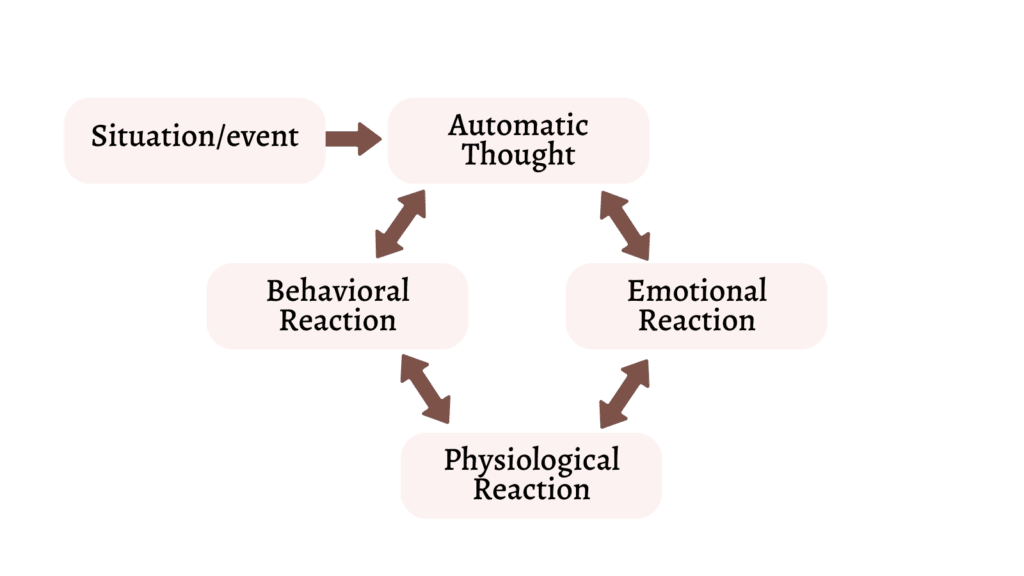
Related: Why Is Trauma Therapy So Hard? (+Best Trauma Healing Exercises To Support Your Recovery)
Why cognitive behavioral therapy?
The quality of our lives is defined by the quality of our thoughts and emotions. We attract what we think.
Positive thoughts can improve your life significantly. It can boost your confidence, help you connect with others easily and enjoy yourself.
Negative thoughts can harm your self-esteem. It can cause anxiety, fear, and even lead to depression. A lot of the mental issues we struggle with are rooted in negative thinking.
This is where CBT comes into play.
Related: Cognitive Behavioral Therapy For Low Self Esteem – Top 18 CBT Exercise to Build High Self-Esteem
How CBT Can Help?
1. It can solve a specific problem
CBT is a versatile approach that allows us to address a wide range of issues. By identifying the unrealistic thought or behavior, you can correct it and solve the problem.
2. It is goal-oriented
Being a goal-oriented therapy is an advantage because it clarifies the purpose of the therapy. The therapist and the individual are both in agreement about what they want to achieve.
3. It deals with your current problems
CBT deals with present-day problems. It addresses thoughts and behavioral patterns that are currently causing issues to the individual. It doesn’t analyze their childhood or dig deeper into their past which makes it the least time-consuming of all kinds of therapy.
You can start to see positive results quicker because CBT help you deal with your current problem.
Related: Top 14 CBT Exercise For Anger Management (+FREE Anger Worksheets)
4. It is faster than other forms of therapy
Because it is goal-oriented and deals with your current problems, CBT is a time-limited approach.
5. It will make you more positive
Dr. Aaron Beck, the founding father of CBT, identified three major kinds of automatic thoughts:
(1) negative ideas about the self;
(2) negative beliefs about the world; and
(3) negative views of the future.
CBT help people overcome this negative mindset and encourage them to adopt more positive ways of thinking and behaving.
Through CBT you will learn to stop jumping to conclusions, stop seeing things as purely all-good or all-bad, stop comparing yourself to others or beating yourself up for mistakes, along with many other different kinds of negative thinking.
This makes CBT a simple and effective solution that can alleviate your psychological distress and help you cope better with your problems.
Related: Top 10 Practical CBT Exercises For Generalized Anxiety Disorder Relief
CBT Worksheets Bundle
CBT Worksheets 1. The Problem List
This exercise helps you clearly articulate the specific problem that you want to work on using CBT.
The problem list will help you identify the causes behind the distress you’re feeling. The problem is not your difficult feelings, but the factors that trigger the difficult feelings.
Start by identifying the problem and then identify unhelpful thinking patterns, behaviors, or knowledge or skill gaps that are causing this problem.
CBT Worksheets 2. SMART Goals
Goals help track progress through the CBT process.
It is best to express goals as “Start” rather than “Stop” goals.
- “Stop” goals focus on avoiding or controlling what you don’t want (e.g., to be less anxious).
- “Start” goals focus on what you want (e.g., to become more emotionally resilient).
The latter can cause a rebound effect and shift your focus to worrying about failure rather than noticing your progress.
It is also helpful to express goals using SMART acronym:
- Specific: Expressed in concrete terms.
- Measurable: quantifiable.
- Attainable: Proportionate and achievable.
- Relevant: Consistent with your personal values (who you are and how you want to act)
- Timebound: Clear deadline a frequency measure.
Related: Negative Core Beliefs List (& 8 Tips On How To Challenge Them)
CBT Worksheets 3. Costs and Benefits of Change
A great way to commit to change is to get clear on the costs and benefits of the changes you want to make.
CBT Worksheets 4. Personal Strengths
Your personal strengths are a great resource to help you achieve change.
CBT Worksheets 5. Personal Values
While our goals provide the “What,” our values provide the “Why.”
Identifying our values will help guide us toward the things that are most important to us and help us live more authentically.
CBT Worksheets 6. The CBT Junction Model
The CBT Junction Model will help you make choices that are helpful and in line with your purpose, values, and goals.
CBT Worksheets 7. The Cross-sectional CBT Model
This model helps you understand the link between your thoughts, feelings,behaviors, physical sensations, and triggers. The goal here is to understand how changing your thoughts and behaviors can alter your emotional and physiological response to a certain trigger.
CBT Worksheets 8. Layers of Cognition
Negative thoughts, also called cognitions, can be described on four levels:
1. Negative Core Beliefs,
2. Rigid Rules,
3. Conditional Assumptions, and
4. Negative Automatic Thoughts.
Negative thoughts influence our perceptions, feelings, and behavior. Challenging and changing our negative thoughts (cognitive restructuring) can profoundly shape the way we feel and behave.
CBT Worksheets 9. Cognitive Distortions
We tend to experience distorted thoughts (cognitions) that are unreasonably negative especially after an upsetting event. These distortions can occur so rapidly that we hardly notice them let alone challenge their logic. Yet they affect our mood and sense of worth so profoundly.
Related: What Causes Cognitive Distortions? (+Top 10 Common Cognitive Distortions & How To Challenge Them)
CBT Worksheets 10. The CBT Thought Record
This is a great tool to become aware of and challenge your negative thoughts.
CBT Worksheets 11. The ABC Form
The ABC Model is a tool that will help you examine behaviors you want to change, the triggers behind those behaviors, and the impact of those behaviors on negative or maladaptive patterns.
“A” refers to the antecedent, or the event or activity that immediately precedes a problem behavior. The “B” refers to observed behavior, and “C” refers to the consequence, or the event that immediately follows a response.
CBT Worksheets 12. The Self Perception Continuum
This is a great tool to help you view yourself in a more realistic way.
CBT Worksheets 13. Worry – Thinking Time
Many of us believe that by worrying we’re attending to the problem, however, research shows that worry doesn’t change the outcome and overtime increases intolerance of uncertainty.
Research also revealed that 85% of the things we worry about never actually happen, and the remaining 15%, 11% happen in a much less severe manner than predicted, and for the remaining 4% worrying won’t change the outcome.
Worry-thinking time is a great tool to interrupt worry in a gradual manner.
Related: Top 10 Practical CBT Exercises For Generalized Anxiety Disorder Relief
CBT Worksheets 14. Linking Feelings and Appraisals
Appraisals (meaning we give situations) influence the way we feel. By changing appraisals, we can change our feelings.
Related: Top 21 Emotional Writing Prompts To Process Emotions
Download FREE CBT Worksheets Bundle
FAQ
How Mental Health Worksheets Work?
Through written exercises and journaling prompts, mental health worksheets help increase your self-awareness and empower you to take action.
You don’t have to be in therapy to use and benefit from mental health worksheets.
How Can These Worksheets Benefit Your Mental Health?
Whether you are using worksheets as a part of formal therapy or are completing them on your own, mental health worksheets offer numerous benefits.
Mental health worksheets are outstanding tools that can supplement mental health interventions, and help you increase your self-awareness and connect with yourself on a deeper level.
The best thing about using mental health worksheets is that they allow you to take an active role in your recovery and maintaining your wellbeing.
They help you self-reflect and decide on a plan of action that will help you unstuck yourself and step into the life you want to live and the self you want to be.
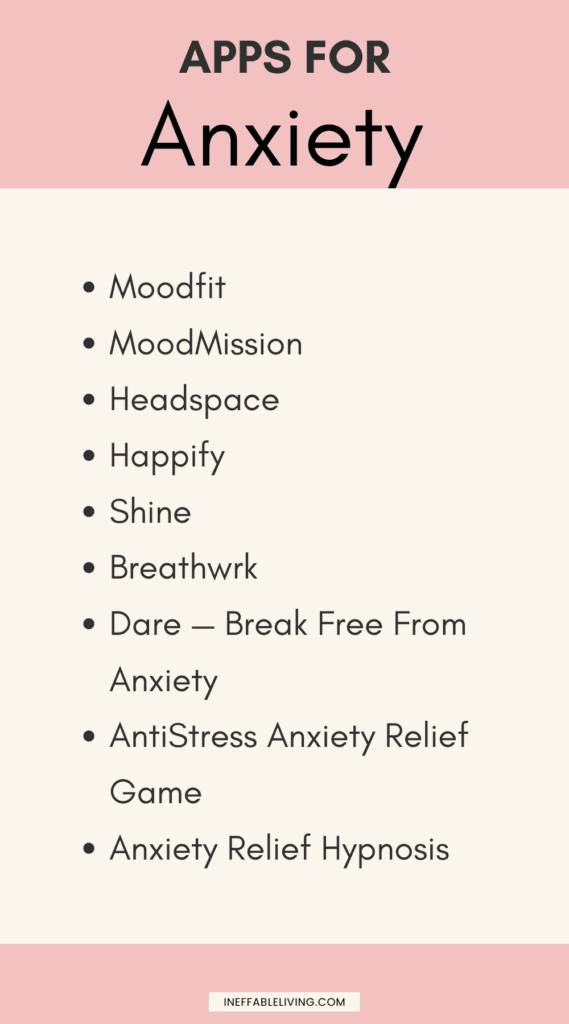
References
- Overview – Cognitive behavioural therapy (CBT) – NHS (www.nhs.uk)
- What is Cognitive Behavioral Therapy? (apa.org)
- Cognitive behavioral therapy – Mayo Clinic
- Cognitive Behavioral Therapy (CBT): Types, Techniques, Uses (verywellmind.com)
- Cognitive behavioral therapy: How does CBT work? (medicalnewstoday.com)
- The Efficacy of Cognitive Behavioral Therapy: A Review of Meta-analyses – PMC (nih.gov)
- Why Cognitive Behavioral Therapy Is the Current Gold Standard of Psychotherapy – PMC (nih.gov)
- 5 Clinically Relevant Studies on CBT (psychiatrictimes.com)
